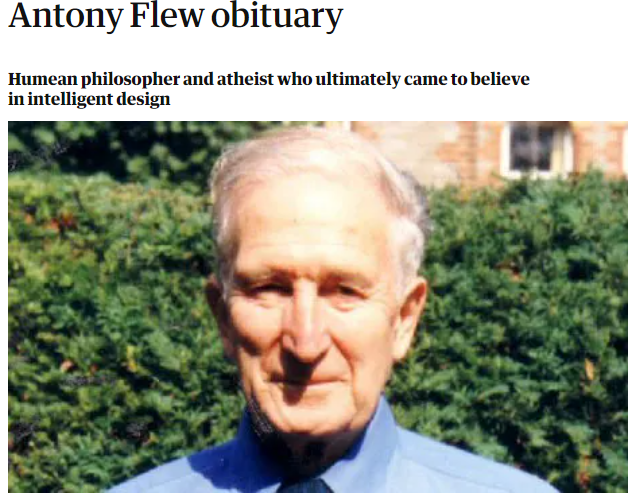Antony Flew: A Philosophical Journey from Atheism to Deism
Written on
Antony Flew was a significant figure in the realm of philosophy, particularly known for his atheistic stance. At one time, he was a leading voice for atheism, a title that is now often associated with Richard Dawkins. In my exploration of this topic, I found a list ranking notable atheists, where Dawkins is positioned at number seven. However, it’s important to note that these rankings don’t really matter since no one wins anything in an afterlife that we don’t believe exists. Flew was once a prominent atheist, but later in his life, he shifted his beliefs.
Did he convert to Christianity? The answer is no, despite some claims I’ve come across. This essay aims to clarify what Flew's final beliefs were.
In his later years, Flew expressed that scientific findings regarding the intricacies of DNA led him to conclude that there must be an intelligent creator. His belief leaned towards deism, which posits that a supreme being created the universe but does not intervene in human affairs. A pivotal influence in this transformation was Gerald Schroeder, a physicist and theologian, whose work, The Hidden Face of God, published in 2001, deeply impacted Flew's thoughts on the improbability of chance occurrences in the universe.
Flew's change in perspective marked his belief in a creator, though he did not embrace the notion of an active God involved in human lives. This deist belief has a rich historical context, and for those interested, a deeper dive can be found in the Wikipedia entry on deism.
Personally, I maintain that atheism holds the correct view. There is no deity that takes a passive role in human existence, as deists might suggest. Agnostics are also mistaken, as we can form an understanding of what a god would be if such a being existed, but ultimately, no such entity is real. Interestingly, I recently realized that Flew's name is spelled without an "h," prompting a correction in my title.
Throughout his career, Flew was known as a staunch advocate for atheism, asserting that one should adopt atheism until compelling evidence for a deity appears. He also critiqued concepts such as life after death and the problem of evil. In 2003, he signed the Humanist Manifesto III, a document that outlines humanist values and aspirations.
The Humanist Manifesto III emphasizes that knowledge is derived through observation, experimentation, and rational analysis. It champions science as the best method for gaining understanding, while still valuing other avenues of thought, creativity, and personal experience—provided they undergo critical scrutiny.
The manifesto further states that promoting societal well-being maximizes individual happiness. It advocates for a progressive culture that seeks to alleviate suffering and foster a global community. Humanists strive for equity and respect diverse perspectives while emphasizing the importance of civic engagement and environmental stewardship.
Flew's transition to deism represents a significant shift in his beliefs. He moved away from humanism and atheism, though he did not convert to Christianity. This is noteworthy, as his belief in a deity signifies a departure from his previous stance. Notably, Albert Einstein held a belief in the God of Spinoza, which sees divinity as the recognition of nature's grandeur rather than a personal God. In contrast, Flew believed in a distinct entity responsible for the complexity of the universe.
While one can subscribe to Spinoza’s idea of God and still identify as an atheist or humanist, Flew’s deism marked a clear distinction. Despite this shift, I would argue that deists can still engage in rational discourse, unlike those who believe in a God that dictates every aspect of life.
Initially, I had assumed Flew had converted to Christianity; however, research revealed that he merely adopted a belief in intelligent design, a concept I often critique. This transformation, while not as dramatic as the fictional character played by Jack Nicholson in One Flew Over the Cuckoo's Nest, still represents a significant departure from his previous beliefs.
In that film, Nicholson’s character undergoes a complete transformation as he navigates the complexities of his life choices. Flew's journey, while less sensational, reflects a profound change in his worldview.
The above image captures a moment from Flew's life, and you can find more details in his obituary linked below.
If you found this essay engaging, please consider supporting the Enlightened Atheist Movement, which aims to promote science and knowledge of the universe.

For further reading, consider checking out the humanist society mentioned earlier, as it promotes noble ideals as well.
Thank you for taking the time to read my thoughts.